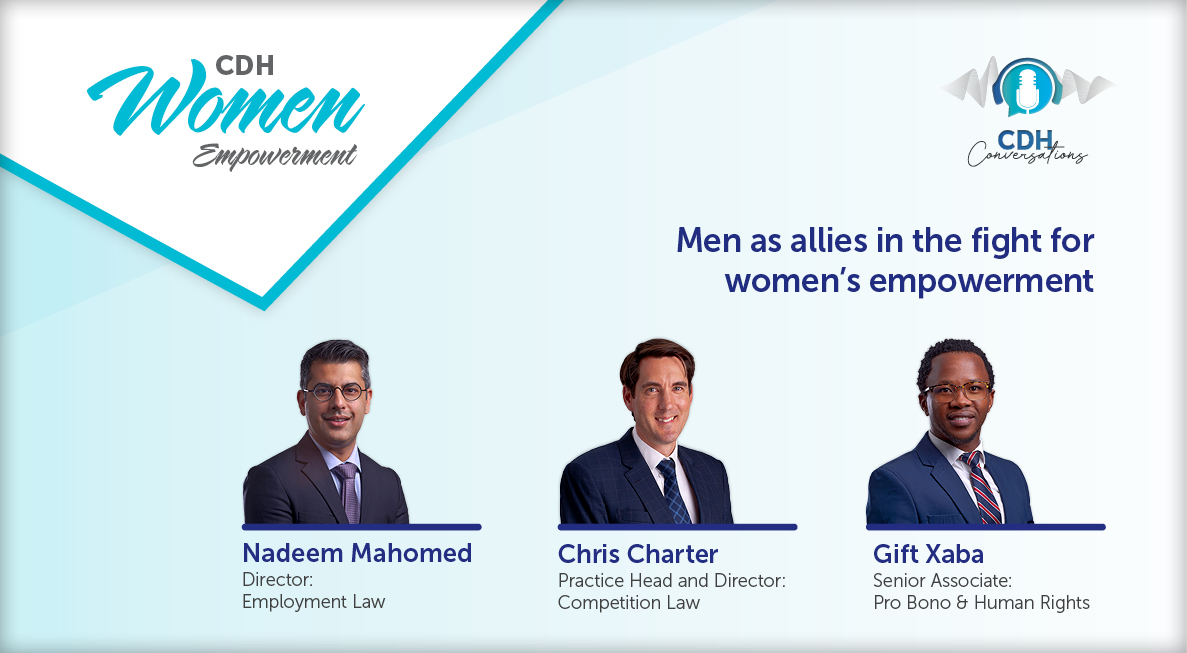In the spirit of Mandela Day, it’s never too late to give back, especially when there is no tax payable – Bursaries and BPR 389
At a glance
- In terms of section 10(1)(q) and 10(1)(qA) of the Income Tax Act 58 of 1962 (ITA), any bona fide scholarship or bursary granted to enable or assist any person to study at a recognised educational or research institution is exempt from normal tax provided that certain requirements are met.
- The applicant in Binding Private Ruling 389 established two bursary schemes, and potentially applied for the ruling as a matter of caution bearing in mind the proviso to section 10(1)(q) and 10(1)(qA) of the ITA and the most recent legislative changes thereto.
- Notwithstanding this, hopefully the ruling can serve as a gentle reminder that giving back to others, without expecting anything in return – including a tax bill – can be the greatest gift.
It is sad to imagine that access to higher education is a privilege that many South Africans do not have as a result of, amongst other things, a lack of funds. Bursaries and scholarships are a great mechanism through which access to higher education can be obtained. It is therefore always commendable whenever a company undertakes to offer bursaries or scholarships to those in need.
In case you forgot, or just did not have the time to give back this past Mandela Day, extending a bursary or scholarship to one, or 67 (see what I did there), children in need could be the greatest gift that you can give this year.
For those who require some extra encouragement to give back, perhaps the tax consequences of advancing a bursary to someone in need may encourage you to do so.
In terms of section 10(1)(q) and 10(1)(qA) of the Income Tax Act 58 of 1962 (ITA), any bona fide scholarship or bursary granted to enable or assist any person to study at a recognised educational or research institution is exempt from normal tax provided that the requirements of the respective sections are met.
In this context, the bursary or scholarship must:
- be bona fide – i.e. it must be extended to the individual in good faith;
- be made to enable or assist the person to pursue a course of study;
- be towards study at a recognised educational or research institution; and
- in the case of section 10(1)(qA), be for a person with a disability as defined in section 6B(1) of the ITA.
The applicant in Binding Private Ruling 389 (BPR 389) provides a great example of how the section can be applied. However, it is possible that the applicant in BPR 389 applied for the ruling because of the most recent legislative changes to these sections. In this context, National Treasury proposed amendments to section 10(1)(q) and 10(1)(qA) of the ITA which came into effect on 1 March 2021 following concerns regarding abuse of these provisions.
The ruling handed down by the South African Revenue Service (SARS) in BPR 389 is discussed below.
Binding Private Ruling 389
The applicant in BPR 389 is a resident company that carries on business in the manufacturing sector. The applicant in BPR 389 recognised that there are children in the community in which it operates who are unable to pursue tertiary studies due to financial constraints.
In this regard, the applicant established two bursary schemes to fund the tertiary education of the children in the surrounding community, which included relatives of people who are employed by the applicant or who were previously employed by the applicant.
The first bursary scheme that was established by the applicant has the objective of providing opportunities for tertiary education to candidates, with sufficient merit, in any field of study. In terms of the first bursary scheme the recipients do not have to complete a work-back period with the applicant after completing their studies. Those who are eligible to apply for the bursaries are members of the general public, which includes the relatives of employees and former employees, however it excludes employees of the applicant. The bursaries awarded in terms of the first bursary scheme are given on a first come, first served basis.
The ruling noted that in the last three years of assessment, on average, 94% of the bursaries awarded in terms of the first bursary scheme were granted to relatives of people who were employees of the applicant, while 4% of the bursaries were awarded to relatives of former employees.
On the other hand, the second bursary scheme was established to provide qualifying students who have completed their first year of study in any field of engineering with funding. Unlike the first bursary scheme, the second bursary scheme contemplates, at the discretion of the applicant, a work-back period for a period equal to the period for which the bursary is advanced.
In terms of the second bursary scheme, all the bursaries, in the last three years of assessment, were awarded to applicants unrelated to employees and former employees of the applicant.
Notwithstanding the creation of two separate bursary schemes, the ruling noted that the bursary schemes had corresponding characteristics in relation to, inter alia, their allocation criteria, application procedure and applicable conditions. In this context, in terms of both bursary schemes the bursaries were allocated based on an academic and administrative testing scale. The criteria that were used to grant the respective bursaries included:
- academic performance;
- financial need;
- course requirements of the educational institution; and
- a selection process based on assessments and interviews.
One of the conditions applicable to both bursary schemes was that a bursary recipient, or their guardian, would be obliged to reimburse the monies awarded to the extent that a recipient failed to comply with the terms of the bursary agreement, which included the recipient discontinuing their studies for whatever reason.
In this context, we set out the legislative framework of sections 10(1)(q) and 10(1)(qA) of the ITA in a bit more detail below before outlining the ruling granted by SARS in BPR 389.
Legal considerations
Generally, any amount, in cash or otherwise, that is received by or that accrues to a resident person must be included in that person’s gross income in the determination of their taxable income, except where the amount constitutes a receipt of a capital nature. Fringe benefits (or taxable benefits as they are referred to in the ITA), must also be included in a person’s gross income. However, an amount included in gross income may constitute exempt income, in which case it will be exempt from income tax. The same principles apply to an amount in respect of a bursary or scholarship.
As noted above, sections 10(1)(q) and 10(1)(qA) of the ITA exempt, from income, any bona fide scholarship or bursary granted to enable or assist any person to study at a recognised educational or research institution. However, where the scholarship or bursary is granted by an employer, or an associated institution, to an employee or to a relative of such employee, the exemption is subject to certain conditions. In this regard, the exemption will not apply:
- In the case of a bursary or scholarship granted to an employee, unless the employee agrees to reimburse the employer for any scholarship or bursary granted if that employee fails to complete their studies for reasons other than death, ill health or injury.
- In the case of a bursary or scholarship granted to the relative of an employee if:
- the remuneration proxy derived by the employee in relation to a year of assessment exceeds R600,000;
- the bursary or scholarship granted, during any year of assessment, exceeds -
- R20,000 in respect of Grades R to 12, or a qualification to which an NQF level 1 to 4 applies;
- R60,000 in respect of a qualification to which a NQF level 5 to 10 applies; and
- any remuneration to which the employee is entitled or might in the future become entitled is in any manner whatsoever reduced or forfeited as a result of the granting of the bursary or scholarship.
- The limits are slightly increased where the recipient of the bursary or scholarship is a disabled person (10(1)(qA)).
The legislative amendment alluded to above came into effect on 1 March 2021, and it relates to scholarships and bursaries provided to relatives of employees. In this regard, the proviso was extended to include a further disqualifying condition for the application of the exemption in section 10(1)(q) and 10(1)(qA) of the ITAITA, which is captured in the bullet point above (regarding forfeiture or reduction of remuneration).
Ruling
Having regard to the above legal considerations, SARS handed down the following ruling in BPR 389:
- In relation to the first bursary scheme, the bursary granted to a relative of an employee of the applicant will constitute a taxable benefit in the hands of the employee as contemplated in the Seventh Schedule to be included in the gross income of the employee under paragraph (i) of the definition of “gross income”. It was further held that paragraph (ii) of the proviso to section 10(1)(q) will apply, i.e. the exemption will not apply unless the conditions noted above are met.
- In respect of the second bursary scheme, the bursary award is to be included in the gross income of the recipient under paragraph (c) of the “gross income” definition. However, the amount included in gross income will be exempt under section 10(1)(q).
The benefit of the exemption is that, in particular where the beneficiary of the bursary/scholarship is an employee or a relative of an employee, where the requirements to qualify for the exemption are met, the amount paid by the employer towards the bursary or scholarship, will be exempt from income tax and potentially exempt from employees’ tax. The ruling may not be particularly groundbreaking insofar as it relates to the interpretation of sections 10(1)(q) and 10(1)(qA) of the ITA, however, it can hopefully serve as a gentle reminder that giving back to others, without expecting anything in return – including a tax bill – can be the greatest gift. As former President Mandela himself said “There can be no greater gift than that of giving one’s time and energy to help others without expecting anything in return”. Perhaps he should have added “and money”.
The information and material published on this website is provided for general purposes only and does not constitute legal advice. We make every effort to ensure that the content is updated regularly and to offer the most current and accurate information. Please consult one of our lawyers on any specific legal problem or matter. We accept no responsibility for any loss or damage, whether direct or consequential, which may arise from reliance on the information contained in these pages. Please refer to our full terms and conditions. Copyright © 2026 Cliffe Dekker Hofmeyr. All rights reserved. For permission to reproduce an article or publication, please contact us cliffedekkerhofmeyr@cdhlegal.com.
Subscribe
We support our clients’ strategic and operational needs by offering innovative, integrated and high quality thought leadership. To stay up to date on the latest legal developments that may potentially impact your business, subscribe to our alerts, seminar and webinar invitations.
Subscribe




